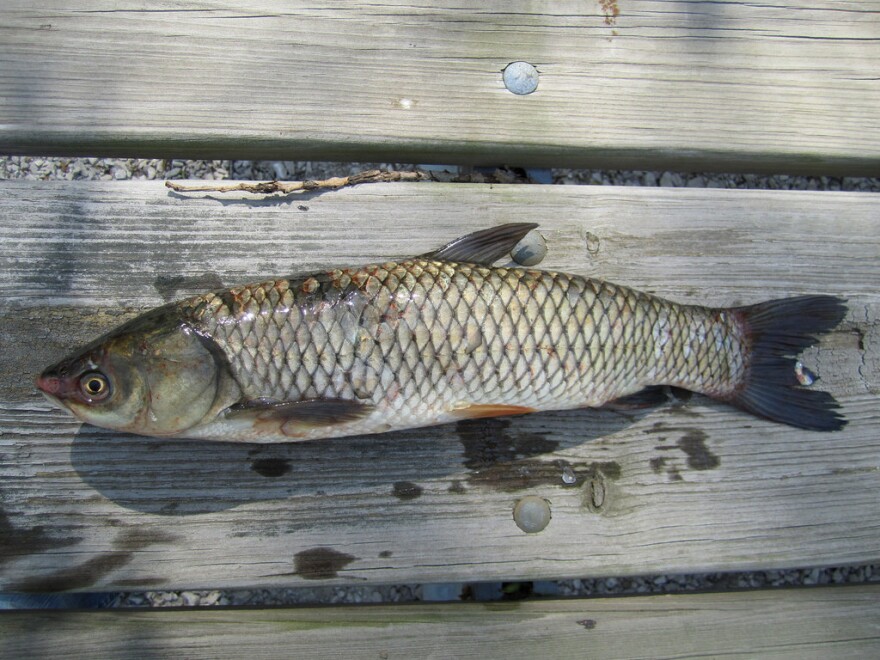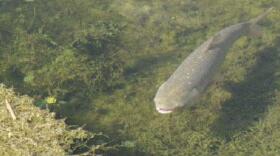Scientists say they've confirmed the discovery of grass carp eggs in a tributary of Lake Erie.
Grass carp are among four species of Asian carp that pose a threat to the Great Lakes. The most feared are silver and bighead carp, which eat plankton and could destabilize food chains. But grass carp are also a problem because they eat huge amounts of valuable plants.
The Great Lakes Fishery Commission says state, federal and university scientists analyzed eggs collected from the Sandusky River in Ohio earlier this summer.
They've now concluded they were grass carp eggs.
More from the GLFC press release:
Prior to this year, collection efforts in the Sandusky River yielded eight grass carp eggs in 2015, with no eggs collected in 2014 or 2016. With a single female grass carp able to produce up to one million eggs during spawning, the implications of finding 7,649 eggs in the Sandusky River this year are as of yet still unknown. It is important to note that no larval grass carp were found since sampling began.
The commission says the number of grass carp in the area is "extremely low," which offers a chance to prevent the invasive fish from gaining a foothold.
The discovery will "inform planning and implementation of a large-scale, coordinated, grass carp-focused action in the Sandusky River in 2018."







